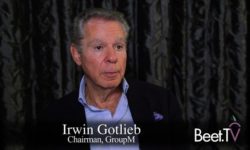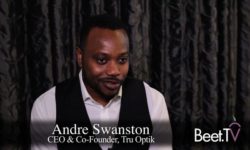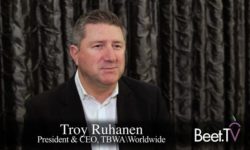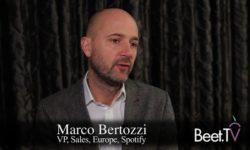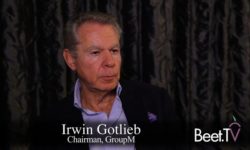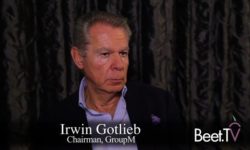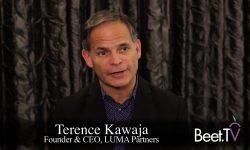LAS VEGAS – When Brian Wieser looks at The Walt Disney Co.’s desire to buy certain aspects of 21st Century Fox, he sees the impact of both shifting viewing habits and the intrusion of big digital players.
For Disney, it’s the appeal of a big, quick deal and the options here and overseas it will deliver for testing various direct-to-consumer offerings. He cites what Sky TV has in Europe and Star has in India, plus a bigger stake in Hulu, along with ESPN’s app launch this year and the standalone Disney branded app in 2019.
“There’s a number of initiatives that Disney will be able to experiment with and see which model of the direct-to-consumer approach works,” the oft-quoted Senior Analyst at Pivotal Research says in this interview with Beet.TV at CES 2018.
On the Fox side, he believes one factor is that the company was “freaked out” by Facebook having expressed a willingness to bid $600 million for five years of cricket game rights in India. It would have cost Facebook $120 million a year in a market with a billion dollars of annual digital ad revenue, which he terms astronomical.
“And if you’re a Fox and you’re looking at what Facebook is willing to do in India, what are they willing to do in the U.S. if that’s the scale at which they’re willing to operate?” Wieser says. “I think there’s an appreciation of the consequences of Facebook, Google, Amazon and even Apple pushing harder into the same space.”
The result will be more consumer choices and lower margins for everyone involved, according to Wieser. He dismisses the notion of “peak TV” wherein content creators will suddenly come to their senses and pare back output, adding “I don’t believe that.”
As far as advertisers are concerned, their TV budgets are “largely independent” of the supply of inventory, according to Wieser. For example, if there were 10% less “sufficiently premium” video inventory, it would not have an impact on the amount of spending in and of itself.
“As long as television is the worst form of advertising except for all those others that have been tried, and it is for large brands that are building or sustaining their brands, and there is no next best alternative, the money will be what the money is,” Wieser says.
While he acknowledges that the largest global agency holding companies are under extreme pressure from mostly client-initiated strictures, he’s less impressed by some in the industry about competition from big consultancies like Accenture. But until such time as of these companies were to buy a WPP or Publicis “or something much bigger, it’s not that big of a difference from what agencies always face.”







